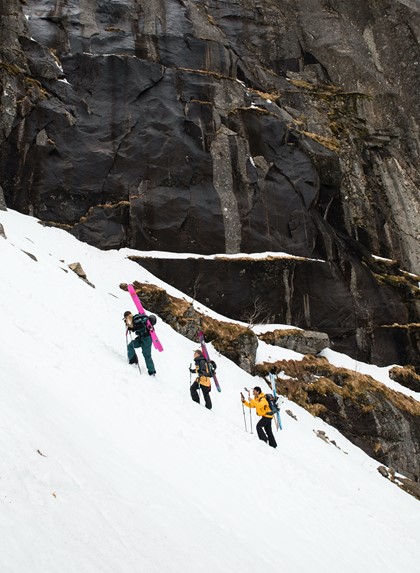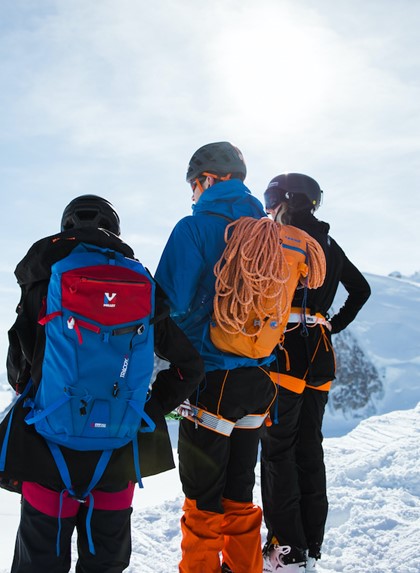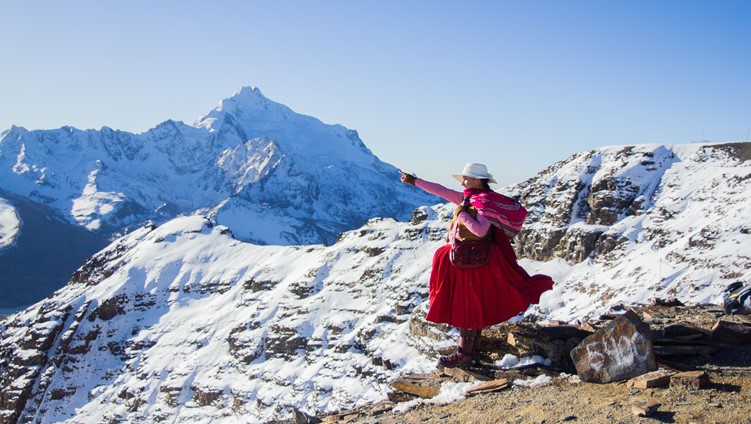Drawing on her involvement with POW UK, Daisy Maddinson reflects on the importance of community organising in outdoor activism.
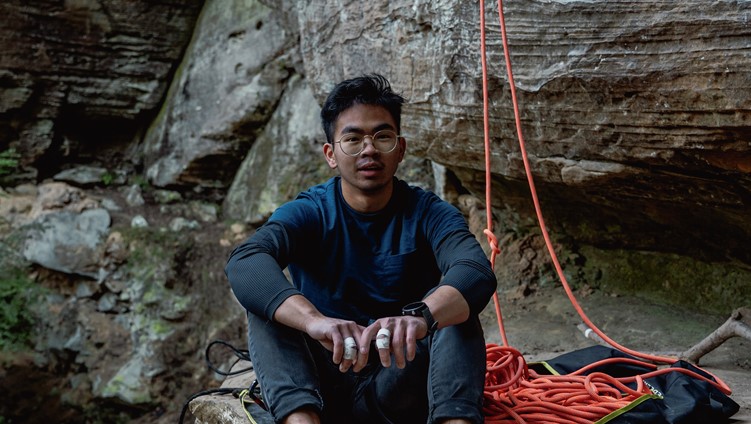
Drawing on her involvement with POW UK, Daisy Maddinson reflects on the importance of community organising in outdoor activism.
If you had asked me what community organising was two years ago, I would have probably looked at you blankly. At that point, I was just starting my journey into more serious environmental activism and looking for ways to contribute. I knew that our voices were stronger together, but I wasn't entirely sure where I fit in.
As someone that spends as much time as physically possible outside - whether that's on snow, dirt or rock - and relishes learning about the natural world, you could say my sense of responsibility to it was inevitable. Seeing the changes to our environment up close and personal gave me a knot in my stomach. What use were my small individual actions when governments were doing nothing to change the system? There had to be a better way.
That's when I realised we can use our time outdoors as a tool for change; in our own lives, our communities and the world. The outdoors provide us with a meaningful connection to the earth, ourselves and each other, so how can we harness that energy to do something positive?
When we play outdoors, whether up a mountain, in the sea, on a trail, or in a river, we interact with our environment in a deeper way. We bear witness to changes others may not see. Getting outdoors helps us cultivate a greater sense of belonging and presence, and lessens anxiety by turning our attention outwards. We, more than most, recognise the inherent wealth of the natural world.
As people who recreate outside, surely it's our duty to stand up for environments vulnerable to the effects of the climate crisis. Because if we don't stand up for the places we play, who will?
'As people who recreate outside, it's our responsibility to stand up for the places and people vulnerable to the effects of the climate crisis. Because if we don't stand up for the places we play, who will?'
Enter stage right: Outdoor Activism. By rooting ourselves and others in the places and lifestyles we cherish, we can rally climate action to save our environment, our shared experiences and traditions. Activism of any description takes courage, creativity and resourcefulness; qualities we use frequently in outdoor sports and time spent outside. So by this logic, we already possess some of the tools necessary for environmental advocacy for the outdoors.
When we talk about outdoor activism to save the planet - however grandiose that sounds - we must also remember the people caught in the crosshairs of the climate crisis. While the impacts of climate breakdown are global, they are unequal. Earth's most vulnerable populations experience the greatest suffering from environmental degradation. Conservation of our wild and managed spaces is vital, as is curbing consumption and emissions, but only if the means to get us there are inclusive and fair for everyone. That's where climate justice comes in.
By definition, climate justice is "a form of environmental justice that gives fair treatment to all people and freedom from discrimination in the policies and projects that address climate change." Climate justice links climate action with human rights and international development, sharing the benefits and the burdens associated with climate breakdown and climate stabilisation with everyone. This means also giving a voice to Indigenous people, First Nations and True Locals who have been respectful stewards of land, waters and culture for thousands of years. Without taking the most vulnerable with us, how can we talk about a better future?
Photos courtesy of Jackson Lana
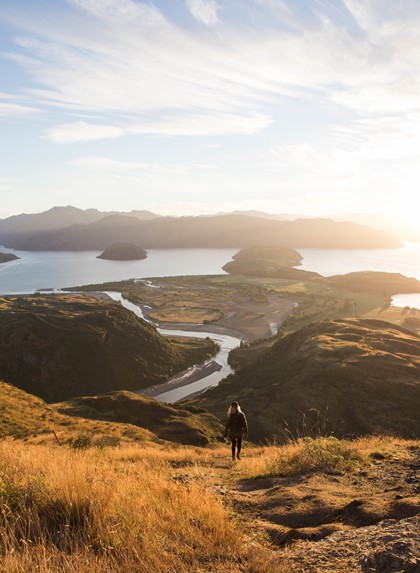
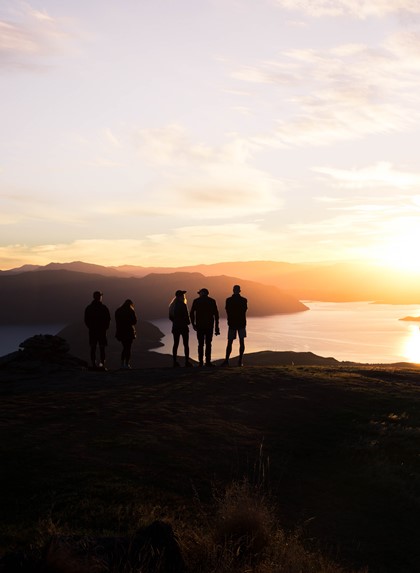
So, if outdoor recreation provides us with a launchpad for environmental activism, and climate justice brings everyone with us, what's the next step?
Starting where you are is essential. No one is asking you to overhaul your lifestyle and go and live in the forest. We’re all walking contradictions and hypocrites, because there is no such thing as a perfect environmentalist. Recognising that we are products of the system is the first step. Knowing that we must do what we can with what we have is the next.
So, whatever is important to you, start there. Love skiing and time outdoors in winter? Join Protect Our Winters. At home on the river? Look for groups like Save Our Rivers. Spend most of your time in the ocean? Perhaps Surfers For Climate is more your jam. When we take action to protect what we value, our energy and fortitude for contributing expands.
As a keen skier, I resonated with POW UK, the country chapter for Protect Our Winters. I’d never been involved in a charity at a working level before, but I was convinced that I had something to offer and became a Board Trustee. As Marketing lead between 2019-2021 for the organisation, I learnt about the merits of local, national and global activism, how community organising works, and how education and awareness empower meaningful climate action. Without awareness there is no action, because as Maya Angelo put it, “When we know better, we do better.”
'We’re all walking contradictions and hypocrites, because there is no such thing as a perfect environmentalist. Recognising that we are products of the system is the first step. Knowing we must do what we can with what we have is the next.'
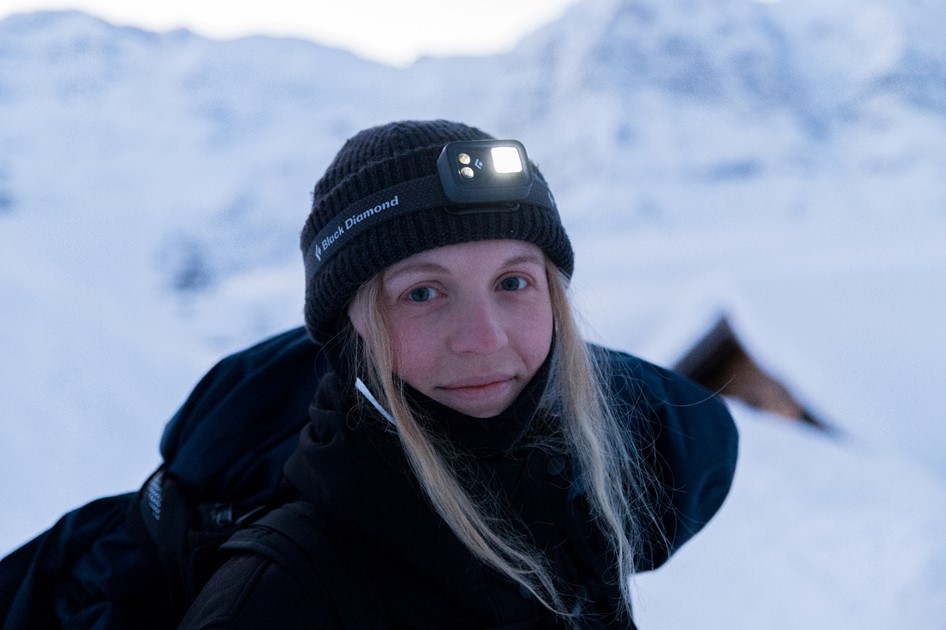
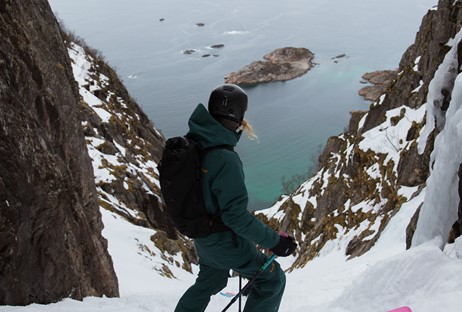
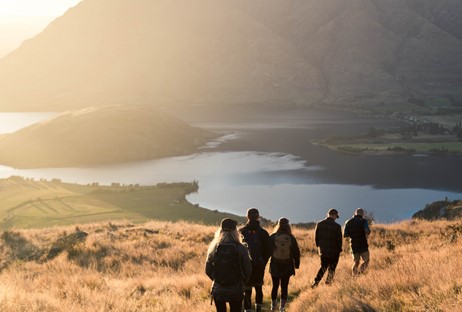
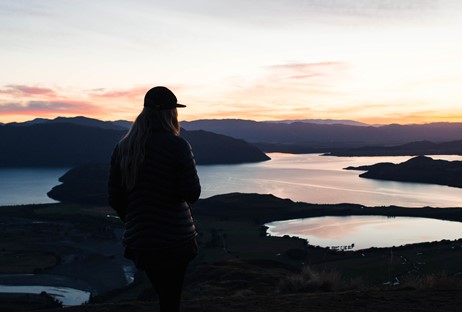
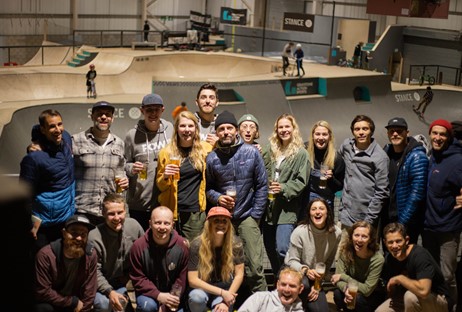
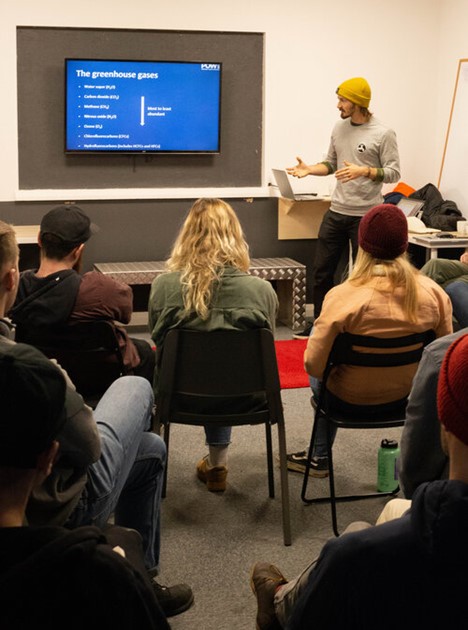
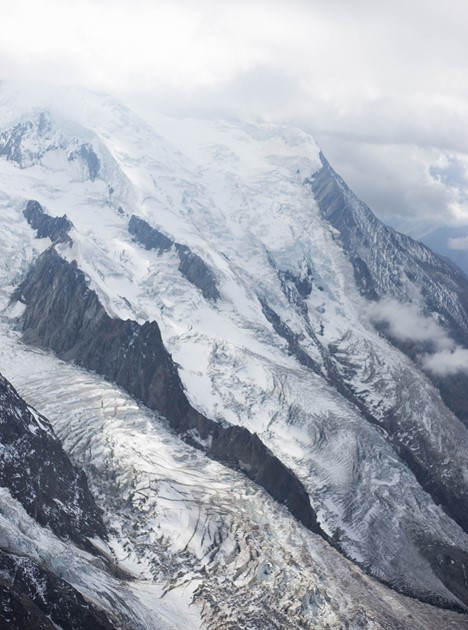
Photos courtesy of Daisy Maddinson & Jackson Lana
POW UK is an NGO focused on climate action on three levels: community, industry and policy. Our work focuses on organising and mobilising the outdoor community and industry to influence policy at a local and national level, by bringing the outdoor voice to the table. The work of organising relates to building relationships through unity and solidarity, and expanding a base of supporters. While mobilising is inspiring those who care to act. First we must organise; then we can mobilise.
Organising allows us to demonstrate citizen support, whether for influencing decision-makers and politicians, gaining new supporters and ambassadors, or generating media. While mobilising promotes accountability and more thoughtful decisions by leaders. To win at Outdoor Activism - whether for environmental or social issues - we must do both.
Community organising requires purposeful communication. It’s important to recognise that our work in environmentalism often reflects the values of the communities we serve, but that without engaging communication, it is difficult to organise or mobilise in a strategic way. Using emotions that empower and trigger action is a compelling tactic. Focusing on an individual, community, or industry level will inadvertently mean employing different tactics.
The main activity of a community organisation, once organised effectively, is campaigning. For POW UK, 2021’s primary campaign will be around COP26, the UN's Climate Change Conference, to pressure leaders for more ambitious climate action and targets. This will require another key aspect of organising: translating technical language and breaking down policy jargon, so that volunteers, staff, and wider community can understand and communicate why it is important. Without this vital function, the gap between our community’s experience outdoors and their ability to influence change at a policy level is too great for positive mobilising. Campaigning must use diverse tactics to win the hearts and minds of our community and those we hope to influence.
Photo: Jackson Lana
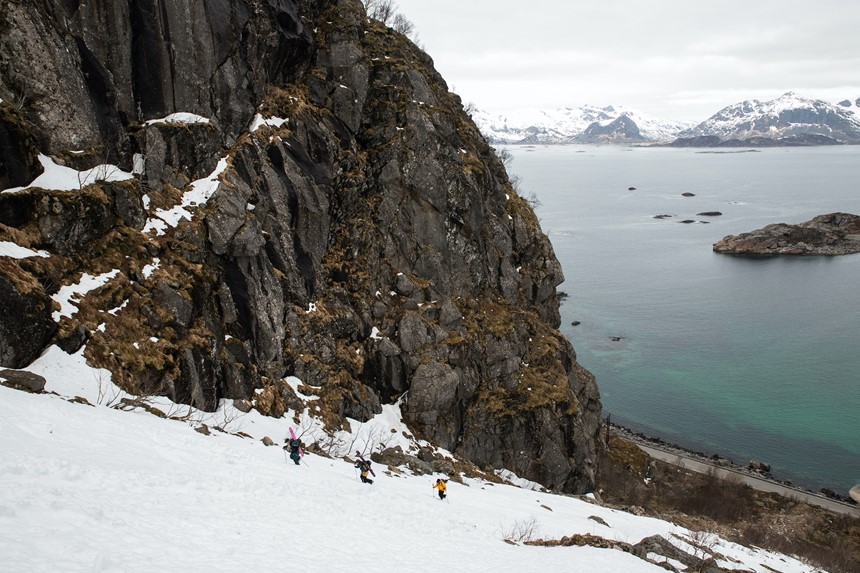
Forming alliances that encourage collaboration, coordination and working in networks is essential for generating impact outside our sphere of influence. Here, the power of coalitions for community organisations comes into play. Coalitions represent the interests of countless groups who are coming at an issue from different perspectives. By making this alliance, campaign messages are stronger, and the voices harder to ignore. For example, POW UK is part of coalitions such as The Climate Coalition and Stop Climate Chaos Scotland, which work across faith groups, conservation and wildlife groups, social justice groups and more to create large cohesive campaigns. Building allyship is key.
However, advocacy is not without its challenges. Community organisations may struggle with finding diverse donor sources, building community across distance or filling volunteer skill gaps. Outdoor environmental organisations also face the challenge of addressing privilege and systems of oppression that are entwined with outdoor access and invitation into the outdoors. “Why should I care if the white middle class can't go skiing?" is a sentiment we’re well aware of. That’s why communicating and acting in a way that ensures the outdoors is a space for everyone to enjoy is as important as saving the environment - remember that climate justice piece? Groups such as Colour The Trails, Belay All and Indigenous Women Outdoors are all working hard to change this. We must consistently work together to move the needle and uplift those who are underrepresented in the outdoors. That is how we will have the most impact.
Positive participation and leadership are also critical for outdoor organisations. Volunteers are the bread and butter for most NGOs, and it's essential to keep them engaged and valued. A burnt out activist is a useless activist. To build and sustain powerful and effective movements, we must apply regenerative activism, which rests on an understanding and appreciation for whatever someone can give in a given moment. A leader should be listening as much as they are talking, understanding what people need to meet campaign goals, and treating all with humanity. To truly work in alignment with our mission, we must embody the values that we want to see in the world - and that includes rest, joy, kindness and compassion.
Photos: Jackson Lana
